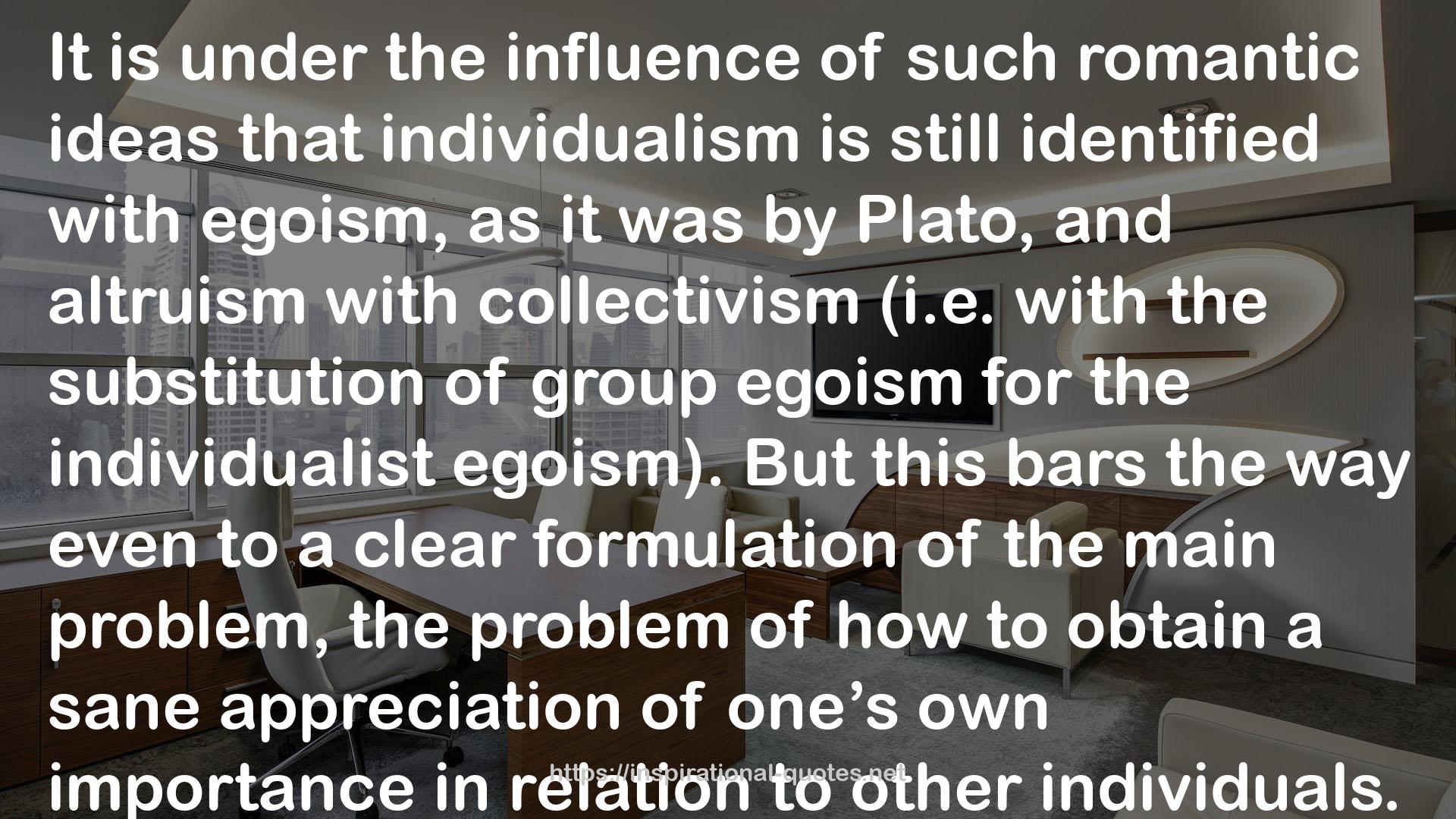" It is under the influence of such romantic ideas that individualism is still identified with egoism, as it was by Plato, and altruism with collectivism (i.e. with the substitution of group egoism for the individualist egoism). But this bars the way even to a clear formulation of the main problem, the problem of how to obtain a sane appreciation of one’s own importance in relation to other individuals. Since it is felt, and rightly so, that we have to aim at something beyond our own selves, something to which we can devote ourselves, and for which we may make sacrifices, it is concluded that this must be the collective, with its ‘historical mission’. Thus we are told to make sacrifices, and, at the same time, assured that we shall make an excellent bargain by doing so. We shall make sacrifices, it is said, but we shall thereby obtain honour and fame. We shall become ‘leading actors’, heroes on the Stage of History; for a small risk we shall gain great rewards. This is the dubious morality of a period in which only a tiny minority counted, and in which nobody cared for the common people. It is the morality of those who, being political or intellectual aristocrats, have a chance of getting into the textbooks of history. It cannot possibly be the morality of those who favour justice and equalitarianism; for historical fame cannot be just, and it can be attained only by a very few. The countless number of men who are just as worthy, or worthier, will always be forgotten. "
― Karl Popper , The Open Society and Its Enemies
